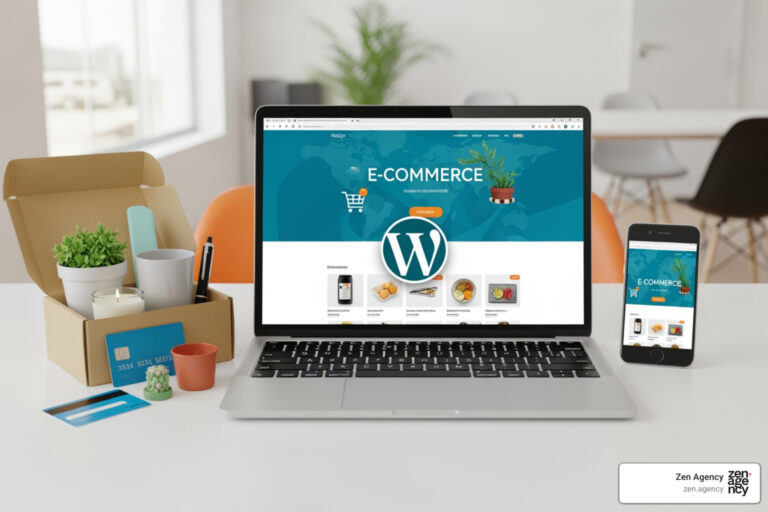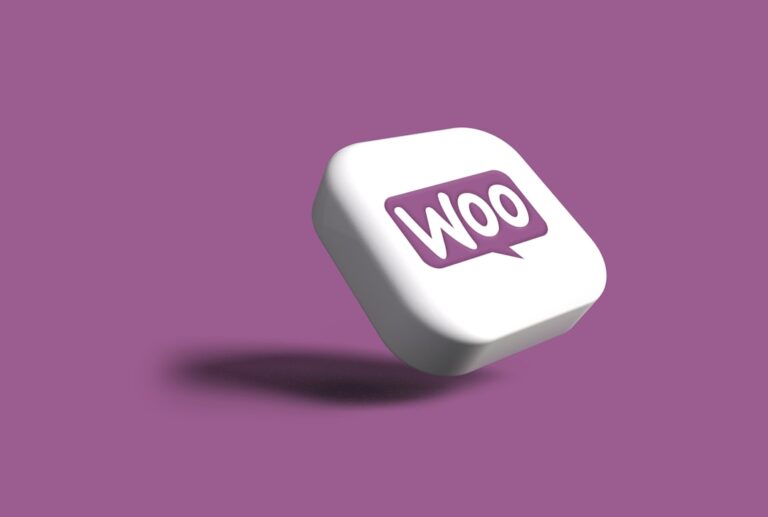The Ultimate Guide to Scaling Your WooCommerce Store with Professional Development
Running a WooCommerce store can be incredibly rewarding, but as your business grows, so do the demands on your website. What worked perfectly when you were processing a handful of orders each day may no longer be sufficient as traffic increases and product catalogs expand. For WooCommerce stores, the ability to scale effectively is crucial to ensuring long-term success and maintaining a positive customer experience.
Scaling isn’t just about adding more products or handling higher traffic — it’s about optimizing performance, ensuring security, streamlining operations, and preparing your store for global growth. In this ultimate guide, we’ll walk through the key steps you need to take to scale your WooCommerce store, focusing on how professional WooCommerce development can make all the difference in ensuring your store can handle growth without compromising performance.
1. Why Scaling Your WooCommerce Store Matters
As a WooCommerce store owner, it’s important to know when your business is ready to scale and why this process is so crucial. When your store starts gaining traction — whether from increased sales, expanding product lines, or a growing customer base — it’s essential to have the infrastructure and performance optimizations in place to handle this growth smoothly.
The Risks of Not Scaling Properly: If your store isn’t prepared to handle higher traffic and larger inventories, you risk slow load times, server crashes, and poor user experiences. This can result in frustrated customers, higher cart abandonment rates, and lost revenue. Furthermore, without the right security measures in place, a growing store becomes more vulnerable to hacking attempts and data breaches.
Professional Development for Scaling: Scaling requires more than just installing a few plugins or upgrading hosting — it involves a strategic approach to development, infrastructure, and optimization. This is where professional WooCommerce developers come in. They can help you scale effectively by customizing your store’s architecture, optimizing performance, and ensuring that your store can handle higher traffic and more complex functionality as your business grows.
2. Assessing When It’s Time to Scale
Before diving into the technical aspects of scaling, it’s important to assess whether your WooCommerce store is ready for the next level of growth. Here are some signs that it’s time to start scaling your store:
Increasing Traffic: If you’re seeing a consistent rise in website visitors and an uptick in sales, it’s time to consider scaling. High traffic can slow down your website if it isn’t optimized to handle larger volumes of data requests.
Slow Load Times: One of the most common indicators that your store needs to be scaled is slow load times. If customers are experiencing delays when browsing your products or completing purchases, it’s a sign that your current setup can’t handle the demand.
Product Expansion: As your product catalog grows, so do the demands on your WooCommerce store’s database. If you’re adding hundreds (or thousands) of products, you’ll need to optimize your database and infrastructure to keep things running smoothly.
High Abandonment Rates: If you notice an increase in cart abandonment rates, it could be due to slow checkout processes or website performance issues. This is a red flag that your store may not be able to handle the increasing load.
By keeping an eye on these key metrics, you can determine whether your store is ready for scaling and take action before performance issues arise.
3. Upgrade Your Hosting for Scalability
One of the most important steps in scaling your WooCommerce store is upgrading your hosting environment. Many small businesses start with shared hosting, which is fine for low-traffic sites but becomes a bottleneck as your store grows. When scaling, you need a hosting solution that can handle more traffic, provide faster response times, and ensure that your store remains online even during peak periods.
Why Shared Hosting Isn’t Enough: Shared hosting means your website shares server resources with other websites. This can lead to slow load times, especially during traffic spikes. It also limits the amount of bandwidth and CPU power available to your site, which can cause performance issues as you scale.
Solutions for Scaling:
- Managed WooCommerce Hosting: Managed hosting providers like Kinsta and WP Engine specialize in WooCommerce stores and offer server environments that are specifically optimized for WooCommerce. These services often come with built-in features like caching, backups, and security, making them ideal for scaling businesses.
- VPS or Dedicated Hosting: For stores with high traffic or complex needs, upgrading to a Virtual Private Server (VPS) or dedicated server is a smart option. VPS hosting gives you more control over your server resources, while dedicated hosting ensures that all server resources are dedicated solely to your store.
Upgrading your hosting is the first step in ensuring that your WooCommerce store can handle the increased demands that come with scaling.
4. Implement Advanced Caching and CDN Solutions
Caching and Content Delivery Networks (CDNs) play a significant role in improving your WooCommerce store’s performance as it scales. Without these tools, your server must process every request in real-time, which can lead to slowdowns during high-traffic periods.
What is Caching? Caching stores a static version of your website’s content (like images, HTML, CSS, and JavaScript files) so that the server doesn’t have to regenerate the page every time a visitor lands on your site. This reduces the load on your server and speeds up the delivery of content.
Types of Caching:
- Page Caching: This stores entire web pages so they can be delivered to users quickly without having to regenerate the content dynamically.
- Browser Caching: This allows frequently used resources (like images or stylesheets) to be stored locally in the user’s browser, reducing the need for repeated downloads.
Content Delivery Networks (CDNs): A CDN distributes your website’s static files across multiple servers worldwide, allowing visitors to load your site from the server closest to their location. This reduces latency and improves load times, especially for global audiences.
Recommended Tools:
- WP Rocket: A comprehensive caching plugin that improves load times by combining CSS, JavaScript, and other static resources.
- Cloudflare: A leading CDN provider that helps distribute your website’s content globally while also providing added security features like DDoS protection.
Implementing advanced caching and using a CDN ensures that your WooCommerce store remains fast, even during traffic spikes or when serving international customers.
5. Optimize Your WooCommerce Database for Efficiency
As your WooCommerce store grows, so does the size of your database. Every product, customer, and order is stored in your WooCommerce database, which can become bloated and slow if not optimized. This is especially important for stores with large product catalogs or high order volumes.
Why Database Optimization is Important: A cluttered database can slow down your website’s performance, as it takes longer to retrieve data and process queries. By optimizing your database, you ensure that it can handle larger volumes of data efficiently.
How to Optimize Your WooCommerce Database:
- WP-Optimize: This popular plugin helps clean up your WooCommerce database by removing unnecessary data, such as old revisions, expired transients, and spam comments.
- Database Indexing: Ensure that your database tables are properly indexed, which helps speed up data retrieval times.
- Regular Maintenance: Set up regular database maintenance to keep your database running smoothly as your store grows.
By optimizing your WooCommerce database, you can improve performance and ensure that your store can handle larger volumes of traffic and transactions without slowing down.
6. Customizing WooCommerce Features to Support Growth
As your store scales, you may need additional features that go beyond what WooCommerce offers out of the box. This is where custom development comes into play. Professional WooCommerce developers can build custom features and functionalities that support your growth and provide a better user experience.
Custom Development for Scalability: While WooCommerce offers many great features, every store has unique needs. Custom development allows you to tailor your store’s functionality to meet the demands of a growing business. Whether you need advanced search filters, custom checkout processes, or multi-vendor capabilities, professional developers can build these solutions for you.
Examples of Custom Features:
- Advanced Product Search: As your product catalog grows, it becomes essential to provide customers with advanced search options. Custom product filters, predictive search, and category filtering can improve user experience and help customers find what they need quickly.
- Custom Checkout Flows: For high-volume stores, streamlining the checkout process is key to reducing cart abandonment. Custom checkout flows, one-click payments, and tailored shipping options can make the checkout process smoother and more efficient.
Professional development ensures that your WooCommerce store can grow alongside your business, providing the features and performance you need to scale effectively.
7. Ensuring Security and Compliance as You Scale
As your store grows, so does the risk of security vulnerabilities. WooCommerce stores that handle higher volumes of transactions and store sensitive customer data need to have strong security measures in place to protect against data breaches and cyberattacks.
Security Challenges for Scaling Stores: With more traffic and larger order volumes, your store becomes a more attractive target for hackers. Additionally, as you scale, you may need to comply with more complex data protection regulations, such as GDPR or PCI-DSS.
How to Secure Your WooCommerce Store:
- SSL Certificates: Ensure that your store is protected with an SSL certificate to encrypt data and provide secure transactions.
- Two-Factor Authentication (2FA): Implement 2FA for both admin users and customers to add an extra layer of security to your login processes.
- Regular Security Audits: Perform regular security audits to identify potential vulnerabilities and fix them before they become a problem.
Professional WooCommerce developers can help implement security best practices and ensure that your store complies with industry standards as you scale.
8. Streamlining Checkout and Payment Processes
A smooth and efficient checkout process is essential for any growing WooCommerce store. As your customer base grows, so do their expectations for a fast and hassle-free checkout experience. Optimizing your checkout process is crucial to reducing cart abandonment and ensuring higher conversion rates.
Common Checkout Issues for Growing Stores: As traffic increases, slow or complicated checkout processes can lead to higher abandonment rates. Offering limited payment options or requiring too many steps to complete a purchase can frustrate customers.
How to Streamline Your Checkout:
- One-Click Checkout: Implement one-click checkout options for returning customers to speed up the buying process.
- Guest Checkout: Offer guest checkout options to reduce friction for new customers who don’t want to create an account.
- Multiple Payment Gateways: Provide a variety of payment gateways, such as PayPal, Stripe, Apple Pay, and Google Pay, to accommodate different customer preferences.
By streamlining your checkout process, you can provide a better shopping experience for your customers and reduce the chances of losing sales due to cart abandonment.
9. Preparing for International Expansion
If your WooCommerce store is growing rapidly, you may be considering expanding into international markets. While this can be a great way to grow your business, it also presents unique challenges, such as handling multiple currencies, managing international shipping, and ensuring compliance with local regulations.
Challenges of Scaling Globally:
- Currency Conversion: If you’re selling to customers in different countries, you’ll need to offer currency conversion options at checkout.
- Language Barriers: For non-English-speaking markets, offering a multilingual store can improve customer experience and boost sales.
- International Shipping: Handling international shipping and taxes can be complex, especially when dealing with different shipping rates, duties, and VAT requirements.
Tools for International Expansion:
- WooCommerce Multilingual: This plugin helps you create a multilingual store, making it easier to sell to international customers.
- TaxJar: Automate your tax calculations for different regions with TaxJar, which simplifies the process of managing VAT, sales tax, and other regional tax requirements.
Expanding your WooCommerce store to international markets requires careful planning and custom development solutions to ensure a smooth transition.
10. Conclusion: How Professional WooCommerce Developers Help You Scale Effectively
Scaling your WooCommerce store is not just about handling more traffic or adding more products — it’s about ensuring that your store performs at its best, offers a seamless user experience, and remains secure as it grows. By working with professional WooCommerce developers, you can ensure that your store is built to scale effectively, with customized solutions that meet your unique business needs.
Whether you’re upgrading your hosting, optimizing your database, or implementing custom features, the right development team can help you scale your WooCommerce store sustainably and successfully.

















